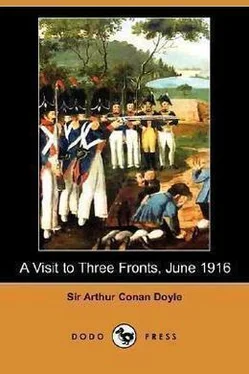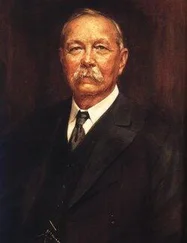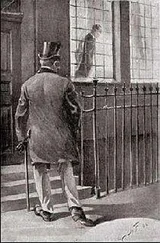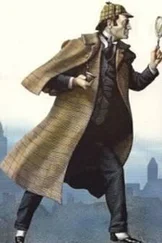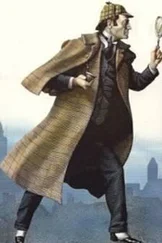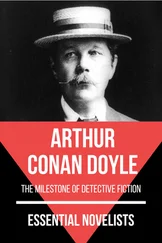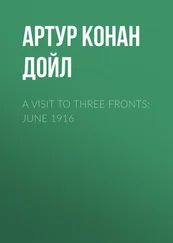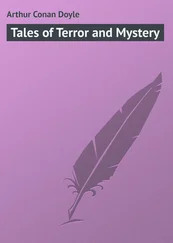Arthur Doyle - A Visit to Three Fronts
Здесь есть возможность читать онлайн «Arthur Doyle - A Visit to Three Fronts» весь текст электронной книги совершенно бесплатно (целиком полную версию без сокращений). В некоторых случаях можно слушать аудио, скачать через торрент в формате fb2 и присутствует краткое содержание. Год выпуска: 2014, Издательство: epubBooks Classics, Жанр: Биографии и Мемуары, Публицистика, prose_military, на английском языке. Описание произведения, (предисловие) а так же отзывы посетителей доступны на портале библиотеки ЛибКат.
- Название:A Visit to Three Fronts
- Автор:
- Издательство:epubBooks Classics
- Жанр:
- Год:2014
- ISBN:нет данных
- Рейтинг книги:3 / 5. Голосов: 1
-
Избранное:Добавить в избранное
- Отзывы:
-
Ваша оценка:
- 60
- 1
- 2
- 3
- 4
- 5
A Visit to Three Fronts: краткое содержание, описание и аннотация
Предлагаем к чтению аннотацию, описание, краткое содержание или предисловие (зависит от того, что написал сам автор книги «A Visit to Three Fronts»). Если вы не нашли необходимую информацию о книге — напишите в комментариях, мы постараемся отыскать её.
A Visit to Three Fronts — читать онлайн бесплатно полную книгу (весь текст) целиком
Ниже представлен текст книги, разбитый по страницам. Система сохранения места последней прочитанной страницы, позволяет с удобством читать онлайн бесплатно книгу «A Visit to Three Fronts», без необходимости каждый раз заново искать на чём Вы остановились. Поставьте закладку, и сможете в любой момент перейти на страницу, на которой закончили чтение.
Интервал:
Закладка:
The last day spent upon the Italian front was in the Trentino. From Verona a motor drive of about twenty–five miles takes one up the valley of the Adige, and past a place of evil augury for the Austrians, the field of Rivoli. As one passes up the valley one appreciates that on their left wing the Italians have position after position in the spurs of the mountains before they could be driven into the plain. If the Austrians could reach the plain it would be to their own ruin, for the Italians have large reserves. There is no need for any anxiety about the Trentino.
The attitude of the people behind the firing line should give one confidence. I had heard that the Italians were a nervous people. It does not apply to this part of Italy. As I approached the danger spot I saw rows of large, fat gentlemen with long thin black cigars leaning against walls in the sunshine. The general atmosphere would have steadied an epileptic. Italy is perfectly sure of herself in this quarter. Finally, after a long drive of winding gradients, always beside the Adige, we reached Ala, where we interviewed the Commander of the Sector, a man who has done splendid work during the recent fighting. 'By all means you can see my front. But no motorcar, please. It draws fire and others may be hit beside you.' We proceeded on foot therefore along a valley which branched at the end into two passes. In both very active fighting had been going on, and as we came up the guns were baying merrily, waking up most extraordinary echoes in the hills. It was difficult to believe that it was not thunder. There was one terrible voice that broke out from time to time in the mountains—the angry voice of the Holy Roman Empire. When it came all other sounds died down into nothing. It was—so I was told—the master gun, the vast 42 centimetre giant which brought down the pride of Liége and Namur. The Austrians have brought one or more from Innsbruck. The Italians assure me, however, as we have ourselves discovered, that in trench work beyond a certain point the size of the gun makes little matter.
We passed a burst dug–out by the roadside where a tragedy had occurred recently, for eight medical officers were killed in it by a single shell. There was no particular danger in the valley however, and the aimed fire was all going across us to the fighting lines in the two passes above us. That to the right, the Valley of Buello, has seen some of the worst of the fighting. These two passes form the Italian left wing which has held firm all through. So has the right wing. It is only the centre which has been pushed in by the concentrated fire.
When we arrived at the spot where the two valleys forked we were halted, and we were not permitted to advance to the advance trenches which lay upon the crests above us. There was about a thousand yards between the adversaries. I have seen types of some of the Bosnian and Croatian prisoners, men of poor physique and intelligence, but the Italians speak with chivalrous praise of the bravery of the Hungarians and of the Austrian Jaeger. Some of their proceedings disgust them however, and especially the fact that they use Russian prisoners to dig trenches under fire. There is no doubt of this, as some of the men were recaptured and were sent on to join their comrades in France. On the whole, however, it may be said that in the Austro–Italian war there is nothing which corresponds with the extreme bitterness of our western conflict. The presence or absence of the Hun makes all the difference.
Nothing could be more cool or methodical than the Italian arrangements on the Trentino front. There are no troops who would not have been forced back by the Austrian fire. It corresponded with the French experience at Verdun, or ours at the second battle of Ypres. It may well occur again if the Austrians get their guns forward. But at such a rate it would take them a long time to make any real impression. One cannot look at the officers and men without seeing that their spirit and confidence are high. In answer to my inquiry they assure me that there is little difference between the troops of the northern provinces and those of the south. Even among the snows of the Alps they tell me that the Sicilians gave an excellent account of themselves.
That night found me back at Verona, and next morning I was on my way to Paris, where I hope to be privileged to have some experiences at the front of our splendid Allies. I leave Italy with a deep feeling of gratitude for the kindness shown to me, and of admiration for the way in which they are playing their part in the world's fight for freedom. They have every possible disadvantage, economic and political. But in spite of it they have done splendidly. Three thousand square kilometres of the enemy's country are already in their possession. They relieve to a very great extent the pressure upon the Russians, who, in spite of all their bravery, might have been overwhelmed last summer during the 'durchbruch' had it not been for the diversion of so many Austrian troops. The time has come now when Russia by her advance on the Pripet is repaying her debt. But the debt is common to all the Allies. Let them bear it in mind. There has been mischief done by slighting criticism and by inconsiderate words. A warm sympathetic hand–grasp of congratulation is what Italy has deserved, and it is both justice and policy to give it.
A Glimpse of the French Line
I
The French soldiers are grand. They are grand. There is no other word to express it. It is not merely their bravery. All races have shown bravery in this war. But it is their solidity, their patience, their nobility. I could not conceive anything finer than the bearing of their officers. It is proud without being arrogant, stern without being fierce, serious without being depressed. Such, too, are the men whom they lead with such skill and devotion. Under the frightful hammer–blows of circumstance, the national characters seem to have been reversed. It is our British soldier who has become debonair, light–hearted and reckless, while the Frenchman has developed a solemn stolidity and dour patience which was once all our own. During a long day in the French trenches, I have never once heard the sound of music or laughter, nor have I once seen a face that was not full of the most grim determination.
Germany set out to bleed France white. Well, she has done so. France is full of widows and orphans from end to end. Perhaps in proportion to her population she has suffered the most of all. But in carrying out her hellish mission Germany has bled herself white also. Her heavy sword has done its work, but the keen French rapier has not lost its skill. France will stand at last, weak and tottering, with her huge enemy dead at her feet. But it is a fearsome business to see—such a business as the world never looked upon before. It is fearful for the French. It is fearful for the Germans. May God's curse rest upon the arrogant men and the unholy ambitions which let loose this horror upon humanity! Seeing what they have done, and knowing that they have done it, one would think that mortal brain would grow crazy under the weight. Perhaps the central brain of all was crazy from the first. But what sort of government is it under which one crazy brain can wreck mankind!
If ever one wanders into the high places of mankind, the places whence the guidance should come, it seems to me that one has to recall the dying words of the Swedish Chancellor who declared that the folly of those who governed was what had amazed him most in his experience of life. Yesterday I met one of these men of power—M. Clemenceau, once Prime Minister, now the destroyer of governments. He is by nature a destroyer, incapable of rebuilding what he has pulled down. With his personal force, his eloquence, his thundering voice, his bitter pen, he could wreck any policy, but would not even trouble to suggest an alternative. As he sat before me with his face of an old prizefighter (he is remarkably like Jim Mace as I can remember him in his later days), his angry grey eyes and his truculent, mischievous smile, he seemed to me a very dangerous man. His conversation, if a squirt on one side and Niagara on the other can be called conversation, was directed for the moment upon the iniquity of the English rate of exchange, which seemed to me very much like railing against the barometer. My companion, who has forgotten more economics than ever Clemenceau knew, was about to ask whether France was prepared to take the rouble at face value, but the roaring voice, like a strong gramophone with a blunt needle, submerged all argument. We have our dangerous men, but we have no one in the same class as Clemenceau. Such men enrage the people who know them, alarm the people who don't, set every one by the ears, act as a healthy irritant in days of peace, and are a public danger in days of war.
Читать дальшеИнтервал:
Закладка:
Похожие книги на «A Visit to Three Fronts»
Представляем Вашему вниманию похожие книги на «A Visit to Three Fronts» списком для выбора. Мы отобрали схожую по названию и смыслу литературу в надежде предоставить читателям больше вариантов отыскать новые, интересные, ещё непрочитанные произведения.
Обсуждение, отзывы о книге «A Visit to Three Fronts» и просто собственные мнения читателей. Оставьте ваши комментарии, напишите, что Вы думаете о произведении, его смысле или главных героях. Укажите что конкретно понравилось, а что нет, и почему Вы так считаете.
